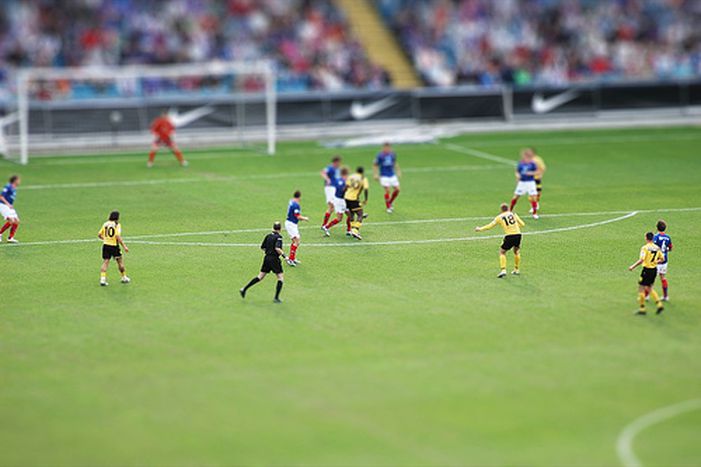
The French football blues
Published on
The memory dated back to 15 years ago. 1993, the Olympique de Marseille team won the Champion’s league cup. Since that day: it seems like the desert. No French club has succeeded in reaching the top European football heights.
While the Real Madrid won the prestigious cup nine times, seven times for the Milan AC, Liverpool chalked it up five times, four times for the Bayern of Munich; compared to this prize lists, French performances look pale.
To Bernard Laporte, secretary of state in charge of sports, one of the main reasons of the French football bad shape is due to a financial deficit. “There’s definitely a big budget lack” declares the former coach of the National rugby team, to the journalists of Téléfoot.
A billionaire in Chelsea
Whereas foreign investors rush at European clubs such as the Russian billionaire Roman Abramovitch in Chelsea or American pension funds in Manchester, very few foreign capitals are investing in France. “There are not many clubs which refuse foreign investors. That’s just that today we’re not drawing their attention” explains Bernard Laporte. “Because, when they take a look at our revenue, when they look at the games’ conditions, they are just got to the conclusion that ‘there’s no way we can invest there, we’d better go to Spain or England’. That’s that simple.”
For French budgets compared with the ones in Europe, are multiplied by three. According to a survey on their turnovers carried out by auditing firm Deloitte, Real Madrid (with €351 millions), Manchester United (€315 millions), and FC Barcelona (€141 millions) trust the top of three first places, whereas the Olympique Lyonnais (€141 millions) first French club hits only the 13th position and the Olympique de Marseille, the 19th position (€99 millions). The heaviest fiscal concerns in France or the TV tax revenues that include a “solidarity” clause towards the smallest teams, affect the French football’s attraction. On the first place, concerning the players. Robert Pires, French football athlete who spent a big part of his career in England in Arsenal, confirms this statement in Téléfoot. “It’s difficult to come back (to France), first on a sports level and then financially… it’s simply not possible…”
The most evidential example within the first league, mocked many times by Guignols de l’info (a satirical show with puppets on French TV): Paris Saint-Germain (PSG). Former coach of the Parisian team, Luis Fernandes explained the raisons of their walloping to the newspaper Direct Matin (on March 27, 2008): “This is a young club, it has to be underlined. With the first titles and the investments of Canal +, we started to get big. At that time, we didn’t use the chance to build up strong groundworks.” And added up laconically: “Years after years, it got worst and we were not able to make a ‘working tool’, especially for the training part. We used our time changing coaches and presidents of the club, selling and buying players.”
Club versus national team
But how to compete with English salaries, more then three times higher than the French average? Although some clubs such as Lyons try to diversify their revenues through an IPO (Initial Public Offering) or substantial merchandising (from shirts, to hair salons and even driving school for the Olympique Lyonnais), these initiatives are still a minority Eric Besson, new secretary of state for forecasting is in fact in charge of a mission of the highest importance: to work on French football competitiveness! But the situation is not that dark. France has a good training centre network where each year many future football stars – of French and sometimes European championships – are being discovered. Cannes, Auxerre, Lyon or Monaco were the training clubs where young Zinedine Zidane, Thierry Henry, Franck Ribéri or Karim Benzema were brought to light. Moreover, at a national level, the French national team, played the last World Cup finale in Germany and is qualified for the Euro 2008 in Austria and Switzerland while David Beckham and his British mates won’t reach that competition this coming June.
-Johara BOUKABOUS
Photo licence: Marius Hanstad/FlickR



